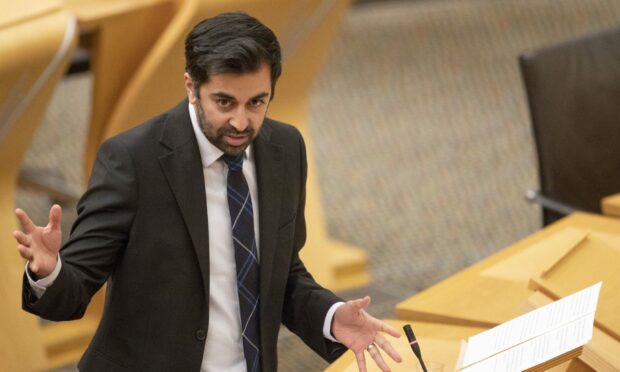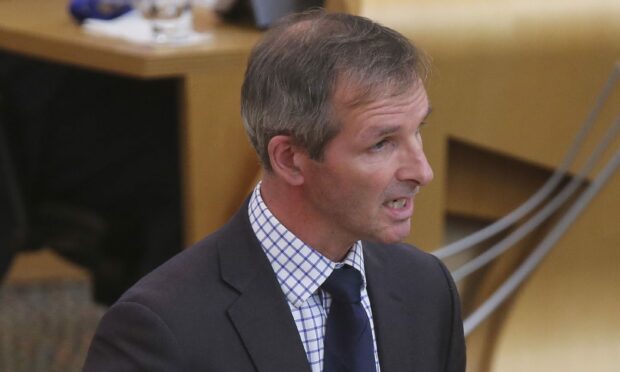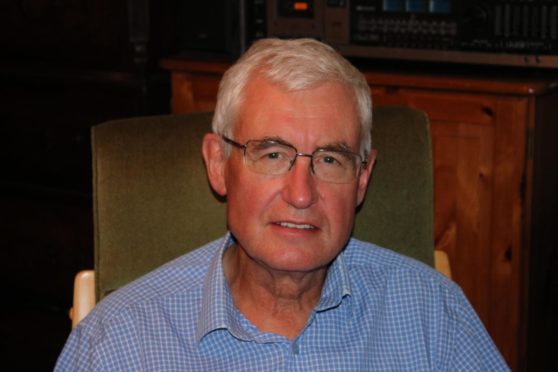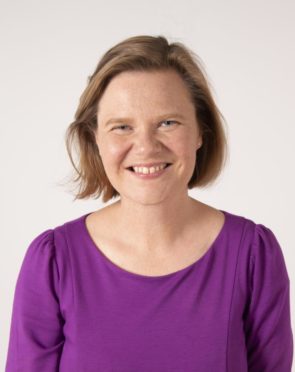Almost 200 medical professionals have written to Health Secretary Humza Yousaf criticising a proposed Bill which could introduce assisted suicide in Scotland.
So far 175 people from the campaign group Our Duty of Care have signed the letter, in opposition to the Bill which was launched last month by Lib Dem MSP for Orkney, Liam McArthur.
If passed, it would allow adults who are terminally ill and mentally competent to die through assisted suicide.
A cross-party group of MSPs has already voiced its support for the introduction of “safe and compassionate” assisted dying laws in Scotland on the back of Mr McArthur’s proposals.
Last month Mr McArthur said he believed people should be able to access safe and compassionate assisted suicide if they want, rather than enduring a potentially long and painful death.
Previously the late Margo MacDonald MSP, who died in 2014 after a long battle with Parkinson’s disease, had brought forward a similar Bill to allow those with terminal illnesses to seek medical help to end their own life.
This was rejected in 2015 by 82 votes to 36.
‘We will not take patients lives – even if they ask us to’
The letter from Our Duty of Care was sent to Health Secretary Humza Yousaf on Monday saying everyone “has a right to life” under The Human Rights Act.
It says: “The shift from preserving life to taking life is enormous and should not be minimised.
“The prohibition of killing is present in almost all civilised societies due the immeasurable worth of every human life.
“As healthcare professionals, we have a legal duty for the safety and wellbeing of our patients.
“We will not take patients’ lives – even if they ask us to.
“But for the sake of us all, we ask that the law remains unchanged.”
The letter also says such legislation would diminish the choices of the most vulnerable, and suggests some patients would not consider assisted suicide unless it was suggested to them.
‘A red line we shouldn’t cross’, says Hebridean GP
Dr Anthony Latham, a GP based on the Isle of Harris and chair of the Scottish Council on Human Bioethics, is one of those who has signed the letter.
He says assisted suicide could lead to society losing “something precious” and says it crosses a line “that we shouldn’t cross”.
Dr Latham said: “I look after patients at the end of their life, and have done for a number of years.
“I see this as a red line that we shouldn’t cross.
“It is legalising the killing of our patients and putting patient’s views above the sanctity of life.
“The British Medical Association did a survey of doctors and about 50% agreed with the possibility of introducing legislation for assisted suicide, which is what this bill is about – but it is interesting that the people opposed to it are the ones looking after patients at the end of life, such as those in palliative care and GPs.
The Royal College of General Practitioners has this morning reaffirmed its opposition to assisted dying after a poll of members.
BMA members have until Thursday 27 February to respond to its consultation on #assistedsuicide and #euthanasia. pic.twitter.com/TUR1vG0XpN
— Our duty of care UK (@OurDutyOfCare) February 21, 2020
“All societies have held onto the fact there is something dignified in human life, which is different to animal life, and if we lose that we lose something precious.”
All societies have held onto the fact there is something dignified in human life, and if we lose that we lose something precious.
Dr Latham added he worries some patients may feel pressured into going through with assisted suicide.
“I think patients, particularly older people, will feel under pressure if they feel they are a burden to society,” he said.
“If we introduce this there will be a route they can take which reduces the burden on those looking after them, but it takes away their dignity and autonomy.”
Dr Latham adds if assisted suicide does become legalised in Scotland, he will be a conscientious objector.
Incredibly high value and worth placed on human lives
Dr Gillian Wright, a former palliative medicine registrar, who now works in medical ethics, helped to organise the 175 medics who have signed this letter to the health secretary.
She said it is more important to make sure there is high-quality and accessible palliative care on offer to those at the end of their life.
Dr Wright said: “Currently the law prohibits the intentional taking of life by an individual or by the state.
“Why is that?
“Because of the incredibly high value and worth that society places on all human life, without exception.
Why is that? Because of the incredibly high value and worth that society places on all human life, without exception.
“We are encouraged that ordinary doctors and nurses from across Scotland have joined together to send a definite message to the health secretary.
“We do understand that there is suffering at the end of life but this should drive us as a society, not to provide assisted suicide, but instead well-funded, accessible, high quality palliative care for all.”
Government wants wider discussion on death and dying in Scotland
A spokeswoman for the Scottish Government says it wants to promote a wider discussion on issues such as bereavement, death, dying, and end of life care.
She said: “We deeply sympathise with people suffering from long-term, debilitating illness and pain.
“The Scottish Government is committed to ensuring that everyone has dignity and respect at the end of their life and we will engage with MSPs on the substance of this bill, as it goes through debate and scrutiny in parliament.
“Scotland is widely recognised for providing high-quality care in this area and we support greater public and personal discussion of bereavement, death, dying and care at the end of life.”




